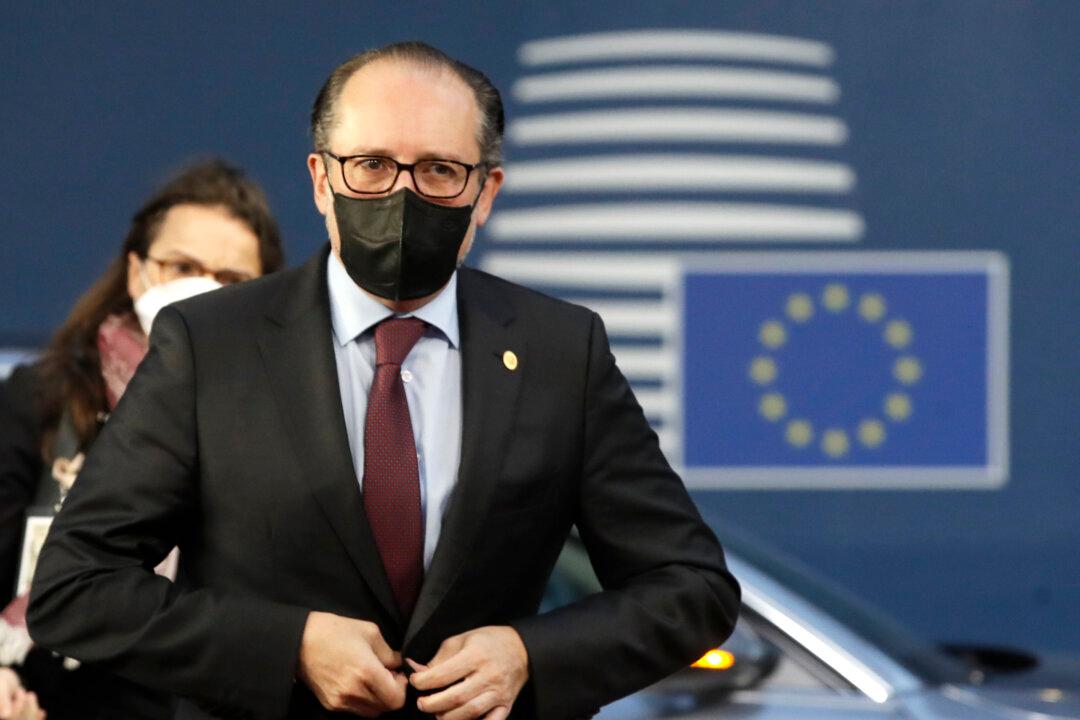People in Austria who chose to not get a CCP virus vaccine face being locked down at home if the number of severe COVID-19 hospitalizations in the nation continues to climb.
Austrian Chancellor Alexander Schallenberg announced on Friday that if the number of COVID-19 patients in intensive care units (ICUs) reaches 600, people who did not get a vaccine would only be allowed to leave their homes for specific reasons.





